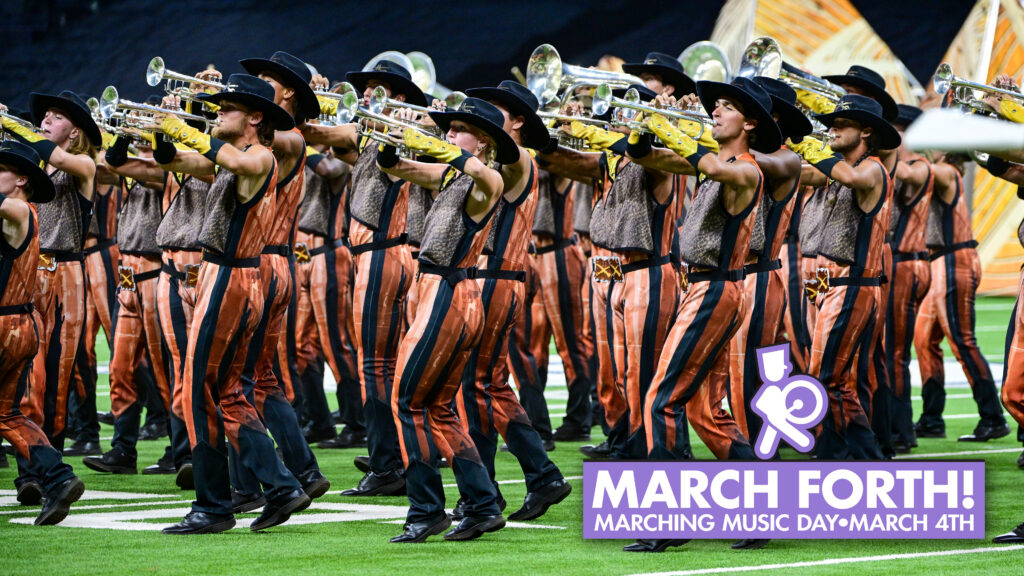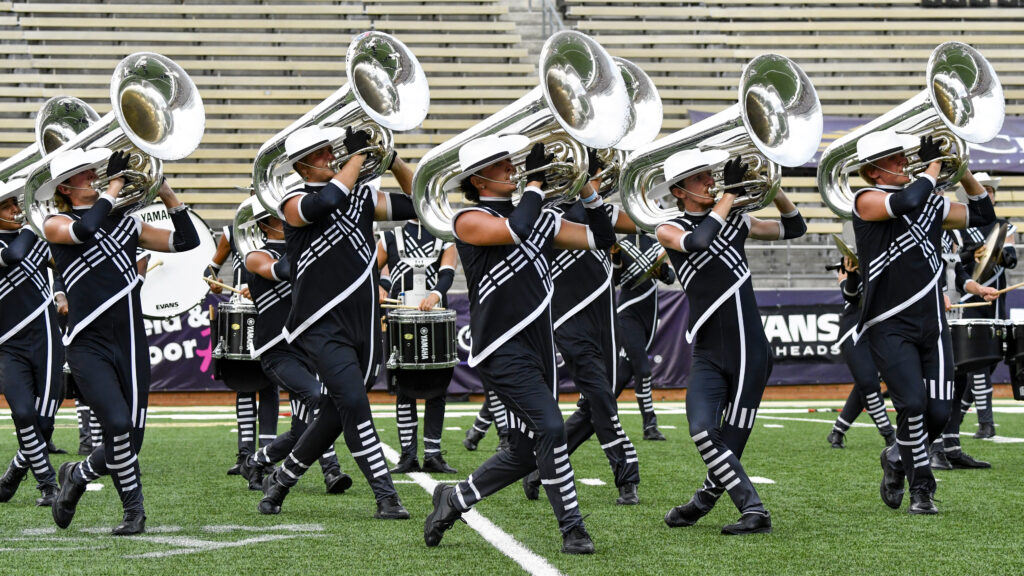
In retrospect, it seems hard to believe that 2010 was just two years ago. As the DCI World Championships returned for the second year to the familiar confines of Lucas Oil Stadium in Indianapolis, what may have been most unfamiliar to the audience was the music Blue Devils played during “Through a Glass, Darkly,” one of my favorite shows of all time. However, that unfamiliarity was balanced by what was most familiar to the fans in the stands—hearing the corps announced in first place for the 14th time in DCI history, capping off two undefeated seasons with perfect scores in two of the three Visual captions. After World War II, bandleader Stan Kenton created a new ensemble to perform the most innovative music created not for dance halls, but for concert halls. Much of the music that resulted from this paradigm shift became known as Third Stream jazz, taking the idiom where it had never been and obscuring the line between jazz and symphonic music. Kenton premiered Bob Graettinger’s “City of Glass” in Chicago’s Civic Opera House in 1947 to a less than enthusiastic reaction, and finally recorded the work on LP four years later. Various incarnations of Kenton’s Innovations in Modern Music Orchestra of 1950-1953 also recorded works by Pete Rugolo, who was chief arranger for Kenton in the post-WWII 1940s; Franklyn Marks, a Dartmouth College music professor better known as the composer of “Remember When” from the “101 Dalmatians” soundtrack; David Raksin, best known for the piece BD performed; and Johnny Richards, whose pop song “Young at Heart” was made famous by Frank Sinatra. The show is a bit of a challenge to write about, as the selections utilized were sometimes woven into the fabric of the show in such a way that they didn’t show up just once. Rugolo’s selections included “Conflict” and “Mirage,” Graettinger’s was “Incident in Jazz” and “City of Glass Suite” and Richards offered “La Suerte de Los Tontos” from “Cuban Fire! Suite.” Marks’ contribution was “Trajectories,” and Raksin’s “Laura” was the most well-known melody, written for the 1944 Otto Preminger film noir production of the same name, made into a massive pop hit the following year when Johnny Mercer set lyrics to the melody.

Michael Boo was a member of the Cavaliers from 1975-1977. He has written about the drum corps activity for more than a quarter century and serves as a staff writer for various Drum Corps International projects. Boo has written for numerous other publications and has published an honors-winning book on the history of figure skating. As an accomplished composer, Boo holds a bachelor's degree in music education and a master's degree in music theory and composition. He resides in Chesterton, Ind.





